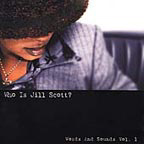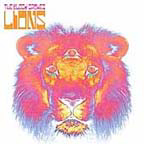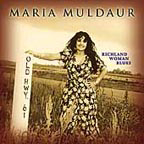|
Ten years ago it was, back in '91, when the Black Crowes' debut, Shake Your Money Maker, broke through nationwide after several months of buildup. Ever since then, the Atlanta-based Crowes have dependably churned out an album every two and a half years or so, each of them featuring the band's passionate articulation of the sanctified tenets of classic rock and roll according to the "holy trinity" of Faces-Stones-Zeppelin. Lions is the latest installment from the brothers Robinson and company, and it's arguably the Crowes' most musically diverse album to date. Granted, that doesn't mean that the Crowes have embraced synthesizers - what do you expect from a band whose most recent album was a live double-disc run-through of Led Zep standards with Jimmy Page guesting on lead guitar? The Crowes' last studio release, 1999's By Your Side, came after a near-breakup and reverted to the straight-ahead rock-and-soul style of their early-nineties heyday. After re-asserting their boogie credentials, Lions finds the band mixing up the pace a bit. Working for the first time with producer Don Was (Bonnie Raitt, the Stones, many others), the Crowes toss off several patented riff-based rockers, some good (the one-two punch of "Lickin'" and "Come On") and some pedestrian ("Ozone Mama," "Cypress Tree"). On the other hand, Lions contains several emotionally-charged songs that, for a change, don't immediately recall the lemon-squeezing, dice-tumbling Brits of yesteryear ("Losing My Mind," "Greasy Grass River," the rousing "Soul Singing," and the weird "Cosmic Friend," which features a jittery piano-scale prelude before the Zep groove kicks in). Lions is inconsistent, but more ambitious than previous Black Crowes releases - not a bad trade-off at all. -Patrick Reed
 Jill Scott Jill ScottWho Is Jill Scott? - Words and Sounds Vol. 1 Hidden Beach Records Who is Jill Scott? She's our new Soul Sistah, Liason of Love, Prime Minister of Passion. Jill Scott, as the first track "JillTro" adequately elaborates, is all about love - the good and the bad. A Philadelphia native, Jill Scott was a relative unknown nationwide until she co-wrote and then performed the Roots' smash hit "You Got Me." Her live performance at the Bowery Ballroom in New York City sparked the now ballooning career of this rootsy poetess. The whole album has a blues/jazz feel, decorated with heads and walking bass lines that add atmosphere and depth to Miss Scott's sultry voice. Yet make no mistake - Miss Scott's voice supercedes all of the album's other instrumentation, heavily laden with the feeling and emotion essential to thought-provoking hip-hop (reference the Roots), jazz and soul. Songs like "The Way" and "A Long Walk" showcase Scott's vocal range and skill as she glides seamlessly between verse and chorus, while the slinkier "Honey Molasses" floats through the speakers with a syrupy sexiness unmatched by any of her contemporaries. Scott possesses a smooth voice reminiscent of singing legends like Billie Holiday, with the same soul as contemporary Erykah Badu. However, Jill Scott surprisingly outdoes the immaculate Ms. Badu in that she brings poetry to her music, not just feeling. Songs like "Love Rain," for example, are free verse spoken word (in the sound-emphasized style of Nikki Giovanni and Maya Angelou) set to a steady back beat, adorned with the occasional melodic chorus. The majority of her poetry is infused with a sense of African heritage and ethnic consciousness, as Scott drops references to Voodoo priest's concubines, the African diaspora and reincarnation. Jill Scott has the raw potential to be one of soul/hip-hop music's reigning divas - her debut album more than showcases her talent for both vocals and lyrics. However, one gets the feeling that Miss Scott has room to grow, ways to expand and elaborate her refreshingly positive stance on the many dimensions of love. Yet, she leaves the listener with every confidence that she will tackle that musical growth head on, and that next time we meet in the record store, there won't be anyone wondering "Who Is Jill Scott?" -Eric Newman
Anyone who can't see how today's coquettish Lolitas are little more than turkey croquettes just has to switch off "Oops ... I Did It Again" for a bit and turn to an experienced woman. Maria Muldaur is three decades past her worldwide sensual hit "Midnight at the Oasis," but she's stayed both avid adventuresome folkie and expressive full-blooded woman. This collection of acoustic Southern rural blues is channeled directly through the spirit of Memphis Minnie, and it includes liner notes and musical guest stars who make you feel very welcome, like instant old friends. Except... it's almost embarrassing to have these guests around when Muldaur licks your ear with the cleverly carnal "Me and My Chauffeur Blues." Though there are songs of faith and journeys here, the collection's highlights come with a very full yowl delivered with a soft and supple throat that can barely contain itself. The title track especially is meant to be shared in close quarters, where the pheremones pile up and there's no spandex or voice synthesizers in sight. Muldaur produced these tracks with only one or two instruments each and the intimacy is almost sweaty. The guitars - and Dave Matthews' piano - never artificially strut a polished roadhouse sound, favoring a loving devotion to recreating the sort of natural pace that could be expected from the originators of this sound: musicians who took to performing on nights after they'd pulled cotton or done wash from dawn 'til dusk. Unfortunately, the pursuit of such veracity sometimes turns the languid into the lumbering. At times it's only the dips and folds in Muldaur's voice that give off enough energy to meet the possessive and earthy demands in the lyrics. Fortunately, she still does have that voice and is ready and willing to apply it to a unique set like this. -T.E. Lyons
|
||
|
|
 Black Crowes
Black Crowes Maria Muldaur
Maria Muldaur